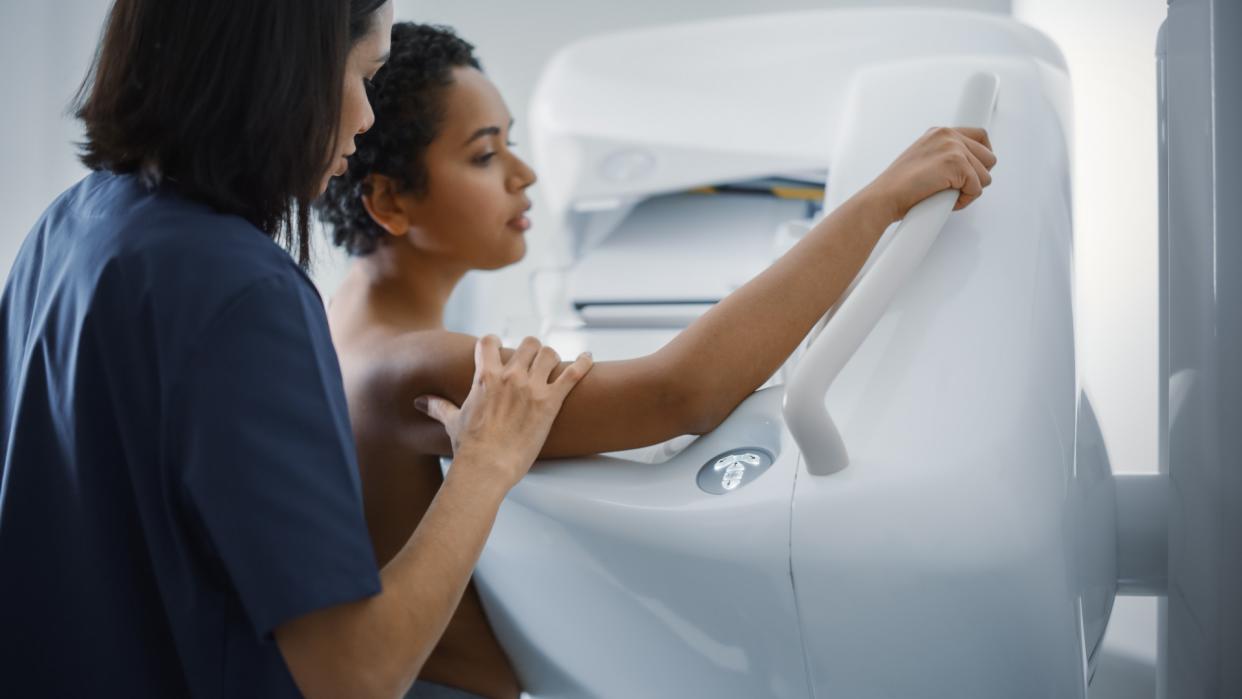Cancer screening may not extend lives, new study suggests. But experts say it's flawed.


Cancer screening involves searching for signs of the dangerous disease before symptoms develop. The goal is to catch cancer as early as possible, making it easier to treat and thus saving lives.
A new study recently seemed to cast doubt on whether screening for cancer actually saves lives, but scientists told Live Science we shouldn't jump to conclusions.
In the new research, published Aug. 28 in the journal JAMA Internal Medicine, scientists reviewed 18 randomized clinical trials (RCTs) involving 2.1 million people, which investigated six tests for four types of cancer: breast, lung, prostate and colorectal, also called colon cancer. The U.S. Centers for Disease Control and Prevention (CDC) supports screening for all of these cancers except prostate cancer, in line with recommendations from an independent panel of experts called the U.S. Preventive Services Task Force (USPSTF).
The analysis revealed that only one colorectal cancer screening test, known as a sigmoidoscopy — which involves using an endoscope to look at the lower part of the large intestine — appeared to extend people's lives on average, by around three months.
So does this mean cancer screening doesn't save lives? Not really, because of key limitations in how the study was designed, experts told Live Science.
Related: AI predicts 5-year breast cancer risk better than standard tools — but we aren't sure how it works
One limitation is that, although the study looked at over 2 million people in total, each individual trial looked at much lower numbers of patients — from around 3,000 in the smallest trial to 400,000 in the largest.
"In the grand scheme of things, given how many millions of people get screened every year, it's a large study but a small part of the population of people that were looked at," Leigh Jackson, a lecturer in genomic medicine at the University of Exeter in the U.K. who was not involved in the study, told Live Science. Some studies dated as far back as 1989, which may also limit their relevance.
The authors also studied "all-cause mortality," meaning deaths from any cause, when they looked at whether cancer screening could extend lives. In other words, rather than seeing how many people died from cancer after either being screened for the disease or not, they looked at how many people died of any cause with and without screening. This approach could muddy their interpretation slightly, explained Stephen Duffy, a professor of cancer screening at Queen Mary University of London who was not involved in the research.
The problem is that "the quite substantial increase in length of life in a very small percentage of people who got cancer is completely swamped by all the deaths from other causes, such as heart disease and strokes," Duffy told Live Science. This means that it may take only a few extra heart attacks in one arm of a trial to "hopelessly bias" the all-cause mortality, he said. (Heart disease is the only disease that causes more deaths in the U.S. each year than cancer.)
However, Jackson said that looking at all-cause mortality may have still been the right thing to do, because if you focus solely on cancer deaths, you may get an inflated sense of how much screening extends life span. Say someone was going to die from cancer at age 70, but screening allowed doctors to detect and treat the disease early and extend their life expectancy to 85. However, if the person then died from a heart attack at 75, they only actually lived for five of those expected 15 years. So if you only consider cancer-related deaths, you might think screening boosts a person's life span more than it does.
While it may be good that the authors used all-cause mortality, they could consider adding other data to their analysis, Jackson said. For example, although RCTs can help assess the effectiveness of screening, Jackson said it would have been good to also use real-world data not collected in a controlled setting like a trial. People who join RCTs tend to be healthier and more affluent at baseline, which can potentially skew their mortality rates, and real-world data could be pulled from much larger groups of people, he said.

So what's the takeaway from the new study?
"I don't think this changes anything," Duffy said. "The well-established experimental evidence that screening for breast cancer, colorectal cancer, lung cancer reduces deaths from these diseases — I think that remains in place." And according to the USPSTF, prostate cancer screening somewhat reduces the risk of death from the disease in some people, but because it's not beneficial for everyone, it's framed as an individual choice that should be discussed with a doctor.
Saying that cancer screening as a whole is ineffective is the wrong message to give, especially since the study looked at tests for only four types of cancer, Jackson said. "I would hope that the better message would be that there is limited evidence for certain screening tests extending life significantly."
Notably, the authors didn't consider cervical cancer, for which the CDC and USPSTF recommend screening.
"You certainly don't want people to look at a finding like this and think, 'Oh, I shouldn't go for my smear test,' or anything like that," Jackson said. "That would be a catastrophic output and totally unsupported by their data."
In the paper, the authors noted that, like any other medical intervention, cancer screening has risks and benefits. There isn't enough data to suggest that screening for some cancers, such as ovarian cancer, reduces deaths from the disease, the USPSTF says. And in some cases, there's not yet enough data to assess whether the benefits outweigh the risks of screening, as is the case with bladder and oral cancer, the task force notes.
RELATED STORIES
—Breast cancer screening should start at age 40, expert task force says
—Black patients may need breast cancer screenings earlier than what many guidelines recommend
—Cancer diagnosis: Detection, testing and research
"It is important to consider a person's personal risk for a particular cancer being screened, which is influenced by factors like having a family history of breast cancer or carrying a pathogenic mutation," Dr. Montserrat García-Closas, a professor of epidemiology at The Institute of Cancer Research in the U.K. who was not involved in the research, told Live Science in an email. These factors shift the balance of whether a person would have more risks or benefits from screening, she said. Overdiagnosis and overtreatment of cancer can result in people suffering serious side effects and psychological distress from therapies they may not have needed, she said.
Although people should be aware of the risks, this doesn't mean they should avoid cancer screening. "People should seek medical advice tailored to their personal circumstances," she said.
This article is for informational purposes only and is not meant to offer medical advice

